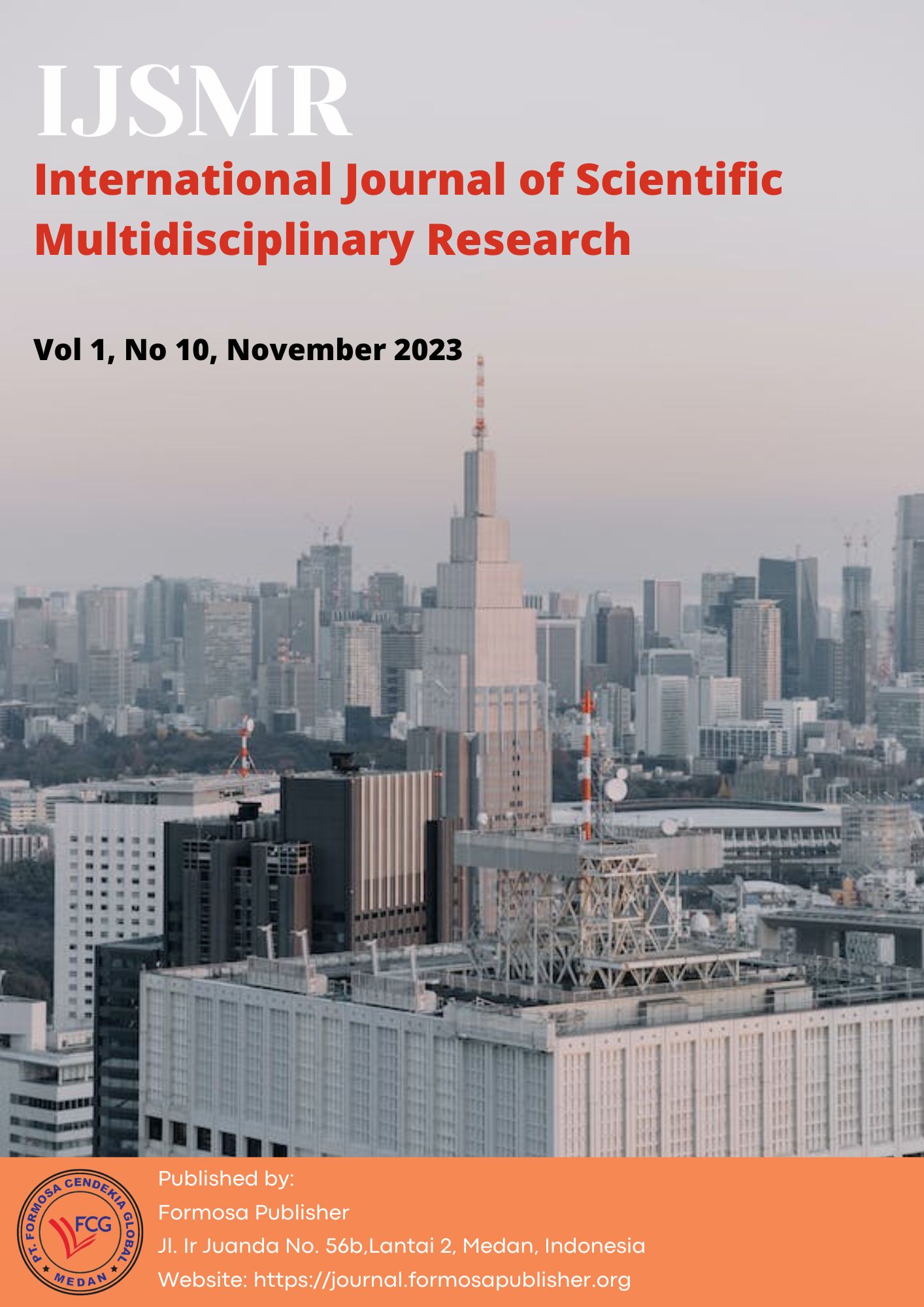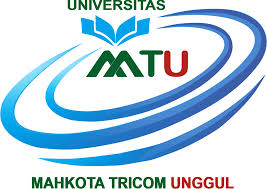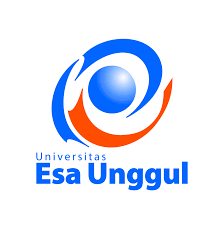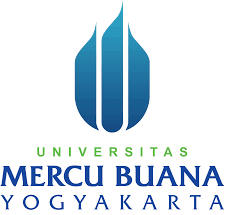Experiences and Strategies of Talipapa Vendors in Transitioning to The New Normal
DOI:
https://doi.org/10.55927/ijsmr.v1i10.6300Keywords:
Experiences, Strategies, Accounting Practices, Talipapa Vendors, New NormalAbstract
This study explored the experiences, strategies, and accounting practices of talipapa vendors in Tuguegarao City during their transition to the new normal. The data were extracted by interviewing the informants using a questionnaire. The data were analyzed using thematic analysis. Three major themes were drawn, namely their experiences, strategies, and accounting practices they incorporated. The results revealed that majority of the informants had negative experiences but were able to survive using short-term strategies they implemented in their business operations and promotion or marketing, mainly targeted towards product and business innovation along with good customer service. On accounting practices, almost half the informants said they have basic accounting practices like bookkeeping and computing expenses and receivables
Downloads
References
Akinso, A. (2018). Successful strategies for the survival of business owners in Nigeria.
Alao, B. & Gbolagade, O., (2020). Coronavirus Pandemic and Business Disruption: The Consideration of Accounting Roles in Business Revival. International Journal of Academc Multidisciplinary Research, 4(5), 108-115.
Amaoko, G. B. (2013). Accounting practices of SMEs: A case study of Kumasi metropolis in Ghana. International Journal of Business and Management, 8(24), 73-83.
Aremu, M. A., & Adeyemi, S. L. (2011). Small and medium scale enterprises as a survival strategy for employment generation in Nigeria. Journal of sustainable development, 4(1), 200.
Aren, A. O., & Sibindi, A. B. (2014). Cash flow management practices: An empirical study of small businesses operating in the South African retail sector. Risk Governance & Control: Financial Markets & Institutions, 4(2), 87-100. Retrieved from http://uir.unisa.ac.za
Arena, M., & Azzone, G. (2012). A process‐based operational framework for sustainability reporting in SMEs. Journal of Small Business and Enterprise Development.
Australian Centre for International Agricultural Research. (2021). Rapid Assessment of the Impact of COVID-19 on Wet Market Reforms: Case Studies from Vietnam, Kenya, and the Philippines. Livestock Systems. https://www.aciar.gov.au/project/ls-2020-204
Battisti, M., & Deakins, D. (2017). The relationship between dynamic capabilities, the firm’s resource base and performance in a post-disaster environment. International Small Business Journal, 35(1), 78-98.
Cai, Y., & Gao, J. (2022). Unearthing the value of wet markets from urban housing prices: Evidence from Beijing, China. Habitat International, 122, 102532.
Choi, T. (2012). Handbook of EOQ inventory problems – Stochastic and deterministic models and applications. New York, Heidelberg, Dordrecht, London: Springer. [Google Scholar]
Coda, R., Krakauer, P. V. D. C., & Berne, D. D. F. (2018). Are small business owners entrepreneurs? Exploring small business manager behavioral profiles in the São Paulo Metropolitan region. RAUSP Management Journal, 53, 152-163.
Consultative Group on International Agricultural Research. (2020). https://cgspace.cgiar.org/bitstream/handle/10568/108548/CGIAR-Responding-to-COVID-19.pdf
Deveshwar, A., & Dhawal, M. (2013). Inventory management delivering profits through stock management. World Trade Centre, Dubai: Ram University of Science and Technology.
Doern R. (2016) Entrepreneurship and crisis management: the experiences of small businesses during the London 2011 riots. International Small Business Journal 34(3): 276–302.
Dorasamy, M., Marimuthu, M., Jayabalan, J., Raman, M., & Kaliannan, M. (2010). Critical factors in outsourcing of accounting functions in Malaysia small medium-sized enterprises (SMEs). Kajian Malaysia, Vol. 28 No.2.
Eriksson, H., Ride, A., Notere Boso, D., Sukulu, M., Batalofo, M., Siota, F., & Gomese, C. (2020). Changes and adaptations in village food systems in Solomon Islands: A rapid appraisal during the early stages of the COVID-19 pandemic.
Ernst & Young (2020). COVID-19 business continuity plan: Five ways to reshape. EY, Canada. EY publication. Retrieved from https://www.ey.com/en_ca/transactions/companies-can-reshape-results-and-plan-for-covid-19-recovery.
Faith, D. O. (2018). A review of the effect of pricing strategies on the purchase of consumer goods. International Journal of Research in Management, Science & Technology (E-ISSN: 2321-3264) Vol, 2.
Foerster, S., Tsagarelis, J., & Wang, G. (2017). Are cash flows better stock return predictors than profits? Financial Analysts Journal, 73(1), 73-99.doi:10.2469/faj.v73.n1.2
Food and Agriculture Organization of the United Nations Philippines. (2021). Rapid assessment of the impact of COVID-19 on food supply chains in the Philippines. https://reliefweb.int/report/philippines/rapid-assessment-impact-covid-19-food-supply-chains-philippines
Hall, C.M., Malinen, S., Vosslamber R. & Wordsworth, R. (eds.) 2016, Business and Post-Disaster Management: Business, Organisational and Consumer Resilience and the Christchurch Earthquakes. Routledge, Abingdon, ISBN: 978-1-138-89085-5 (hbk); ISBN: 978-1-315-64021-1 (eBook).
Haron, N., Yahya, S., & Haron, H. (2014). Cash flow information and small l enterprises' performance. International Journal of Organizational Innovation, 7, 7-17. Retrieved from http://www.academia.edu
Huerta, E., Petrides, Y., & O’Shaughnessy, D. (2017). Introduction of accounting practices in small family businesses. Qualitative Research in Accounting & Management.
Ifekwem, N., & Adedamola, O. (2016). Survival strategies and sustainability of small and medium enterprises in the Oshodi-Isolo Local Government Area of Lagos State. Acta Universitatis Sapientiae, Economics and Business, 4(1), 103-118. https://doi.org/10.1515/auseb-2016-0006
International Labour Organization. Jobs for peace and resil- ience: a response to COVID-19 in fragile contexts: key recom- mendations from the JPR Task Team. Geneva; 2020. www.ilo. org/wcmsp5/groups/public/—dgreports/—dcomm/documents/ brief
International Labour Organization. COVID-19 and the world of work: impact and policy responses; 2020. https:// gisanddata.maps.arcgis.com/apps/opsdashboard/index.html#/ bda7594740fd40299423467b48e9ecf6.CEPR.https://voxeu.org/ content/economics-time-covid-193SeeforexampleUNCTAD, https://unctad.org/en/pages/PressRelease.aspx?OriginalVersion ID=548
Jaisinghani, D., & Kanjilal, K. (2017). Non-linear dynamics of size, capital structure and profitability: Empirical evidence from Indian manufacturing sector. Asia Pacific Management Review, 22(3), 159-165. doi:10.1016/j.apmrv.2016.12.00
Jamaludin, S., Azmir, N. A., Ayob, A. F. M., & Zainal, N. (2020). COVID-19 exit strategy: Transitioning towards a new normal. Annals of Medicine and Surgery, 59, 165-170
Kahando, D. M., Maina, T. M., & Maina, C. M. (2017). An appraisal of financial management practices on the growth of micro enterprise in Kenya. Journal of Business and Economic Development, 2(1), 63-70. doi:10.11648/j.jbed.20170201.18
Kindström, D., Kowalkowski, C., and Sandberg, E. (2013), “Enabling service innovation: a dynamic capabilities approach”. Journal of Business Research, Vol. 66, No. 8, pp. 1063-1073.
Laboratories and Research Facilities (2020). Guide to Business Continuity and Recovery Planning.Emergency Management. https://www.ehs.washington.edu/system/files/resources/UWLabContinuityPlan.pdf
Lin, B., Dietrich, M. L., Senior, R. A., & Wilcove, D. S. (2021). A better classification of wet markets is key to safeguarding human health and biodiversity. The Lancet Planetary Health, 5(6), e386-e394.
Lum, B. W. (2017). Business strategies for small business survival (Doctoral dissertation, Walden University).
Maduekwe, Caroline & Kamala, Peter. (2016). The use of budgets by small and medium enterprises in Cape Metropolis, South Africa. Problems and Perspectives in Management. 14. 183-191. 10.21511/ppm.14(1-1).2016.06.
Mandal, S. C., Boidya, P., Haque, M. I., Hossain, A., Shams, Z., & Mamun, A. A. (2021). The impact of the COVID-19 pandemic on fish consumption and household food security in Dhaka city, Bangladesh. Global food security, 29, 100526. https://doi.org/10.1016/j.gfs.2021.100526
Nadimpalli, M. L., & Pickering, A. J. (2020). A call for global monitoring of WASH in wet markets. The Lancet Planetary Health, 4(10), e439-e440.
Naguib, M. M., Li, R., Ling, J., Grace, D., Nguyen-Viet, H., & Lindahl, J. F. (2021). Live and wet markets: food access versus the risk of disease emergence. Trends in microbiology, 29(7), 573-581.
Nelson, D. R., Adger, W. N., & Brown, K. (2007). Adaptation to environmental change: contributions of a resilience framework. Annu. Rev. Environ. Resour., 32, 395-419.
Onaolapo, A. A., Fasina, H. T., Opoola, N. A., & Olatunji, A. (2011). Basic Accounting One.Ogbomosho: Johnny Printing Works.
Petrikova, I., Cole, J., & Farlow, A. (2020). COVID-19, wet markets, and planetary health. The Lancet. Planetary Health, 4(6), e213.
PriceWaterhouseCooper(2020). ―Accounting implications of the effects of Coronavirus‖. Straight Away Alert, IFRS bulletin PWC. https://inform.pwc.com/accounting-implications-of-the-effects-of-coronavirus-pwc-in-depth-uk2020-02
Rath, T. (2020). Why do wet markets matter?. https://www.ifad.org/en/web/latest/-/blog/why-do-wet-markets-matter-?fbclid=IwAR0auGR86Y2CxmdhlE7f0q-MwO_ey_tyc2MkcH7gfUlyJ65FCORqPJ-sNlY
Stenholm, P., & Renko, M. (2016). Passionate bricoleurs and new venture survival. Journal of Business Venturing, 31(5), 595-611.
Talonpoika, A.M., Kärri, T., Pirttilä, M., Monto, S. (2016). Defined strategies for financial work capital management, International Journal of Managerial Finance, 12, 277-294.doi:10.1108/IJMF-11-2014-0178
Tseng, S.M. and Wu, P.H. (2014), “The impact of customer knowledge and customer relationship management on service quality”, International Journal of Quality and Service Sciences, Vol. 6 No. 1, pp. 77-96
United Nations Philippines. (2021). Urban Food Systems and the Pandemic: Assessing the Impact of COVID-19 on Food Systems and Adaptive Measures Practiced in Metro Manila. https://philippines.un.org/en/138261-urban-food-systems-and-pandemic-assessing-impact-covid-19-food-systems-and-adaptive-measures
Yang, L., Qi, Y., & Jiang, X. (2021). An Investigation of the Initial Recovery Time of Chinese Enterprises Affected by COVID-19 Using an Accelerated Failure Time Model. International Journal of Environmental Research and Public Health, 18(22), 12079.
Yasa, N., Giantari, I. G. A. K., Setini, M., & Rahmayanti, P. J. M. S. L. (2020). The role of competitive advantage in mediating the effect of promotional strategy on marketing performance. Management Science Letters, 10(12), 2845-2848.
Yousef, B. (2013). The use of accounting information by Small and medium enterprises in the south district of Jordan (An empirical study). Research Journal of Finance and Accounting,4(6), 169-175.
Zhong, S., Crang, M. & Zeng, G. (2020). Constructing freshness: the vitality of wet markets in urban China. Agric Hum Values 37, 175–185.
Downloads
Published
How to Cite
Issue
Section
License
Copyright (c) 2023 Patricia Denise Co, Erika Grizzel L. Florentino, John Paulo R. Gacias, Angelika Mae T. Maglasang, Nicole Shane G. Ojano, Karen Joy Catacutan

This work is licensed under a Creative Commons Attribution 4.0 International License.




















